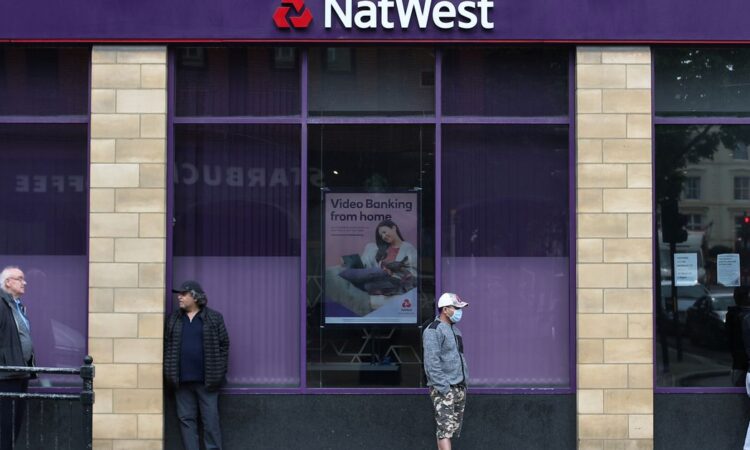
LONDON, Oct 28 (Reuters) – British bank NatWest (NWG.L) reported flat third-quarter profits on Friday, as bad loan charges from a worsening economic outlook and the cost of exiting its Irish business took the shine off income boosted by rising interest rates.
Britain’s economy is facing recession at a time when the Bank of England is hiking interest rates to curb double-digit inflation, squeezing the finances of households and businesses.
The bank set aside an additional 247 million pounds to reflect the deteriorating economic outlook, cutting into its profits.
The bank reported pre-tax profit of 1.1 billion pounds ($1.27 billion) for July-September, slightly below analyst forecasts and unchanged on the prior year.
NatWest shares fell 6.5% in early trading, against a benchmark FTSE index down 0.1% (.FTSE).
The bank was also hit by a 652 million euro ($650.04 million) loss in its Ulster Bank business in Ireland – which it is in the process of exiting. NatWest said was partly due to a revaluation of the Irish business’s mortgage book.
NatWest is the last of Britain’s ‘Big Four’ banks to report results this week. Lloyds, Barclays and HSBC earlier all reported solid profits but unsettled investors with higher bad loan charges.
NatWest said its bad loan provisions reflected its more negative view of its existing economic scenarios. Unlike rival Lloyds it did not update its economic forecasts, opting to wait until its full-year results in February.
NatWest chief executive Alison Rose said the bank had not yet seen heightened signs of financial distress from customers, but said the bank was closely monitoring the situation.
Banks benefit from higher rates as they profit from the difference in what they charge on lending and pay out on deposits. But higher interest rates are a double-edged sword as they also squeeze borrowers and raise the risk of loan defaults.
Higher rates helped boost the bank’s income by a fifth to 3.2 billion pounds.
NatWest said it still expects to reach its return on equity target – a key measure of profitability – of 14-16% in 2023, saying rising income would offset higher costs resulting from inflation.
British banks are also wary that new British prime minister Rishi Sunak may slap extra taxes on the sector, as he seeks to plug a gap in the country’s finances.
Sunak has pledged to restore investor confidence in the country, after a period of political turmoil under predecessor Liz Truss caused chaos in markets.
State-backed NatWest returned to majority private ownership earlier this year, more than a decade on from its 45 billion pound taxpayer bailout in the global financial crisis.
($1 = 0.8654 pounds)
($1 = 1.0030 euros)
Reporting by Iain Withers and Lawrence White, Editing by Jane Merriman
Our Standards: The Thomson Reuters Trust Principles.






